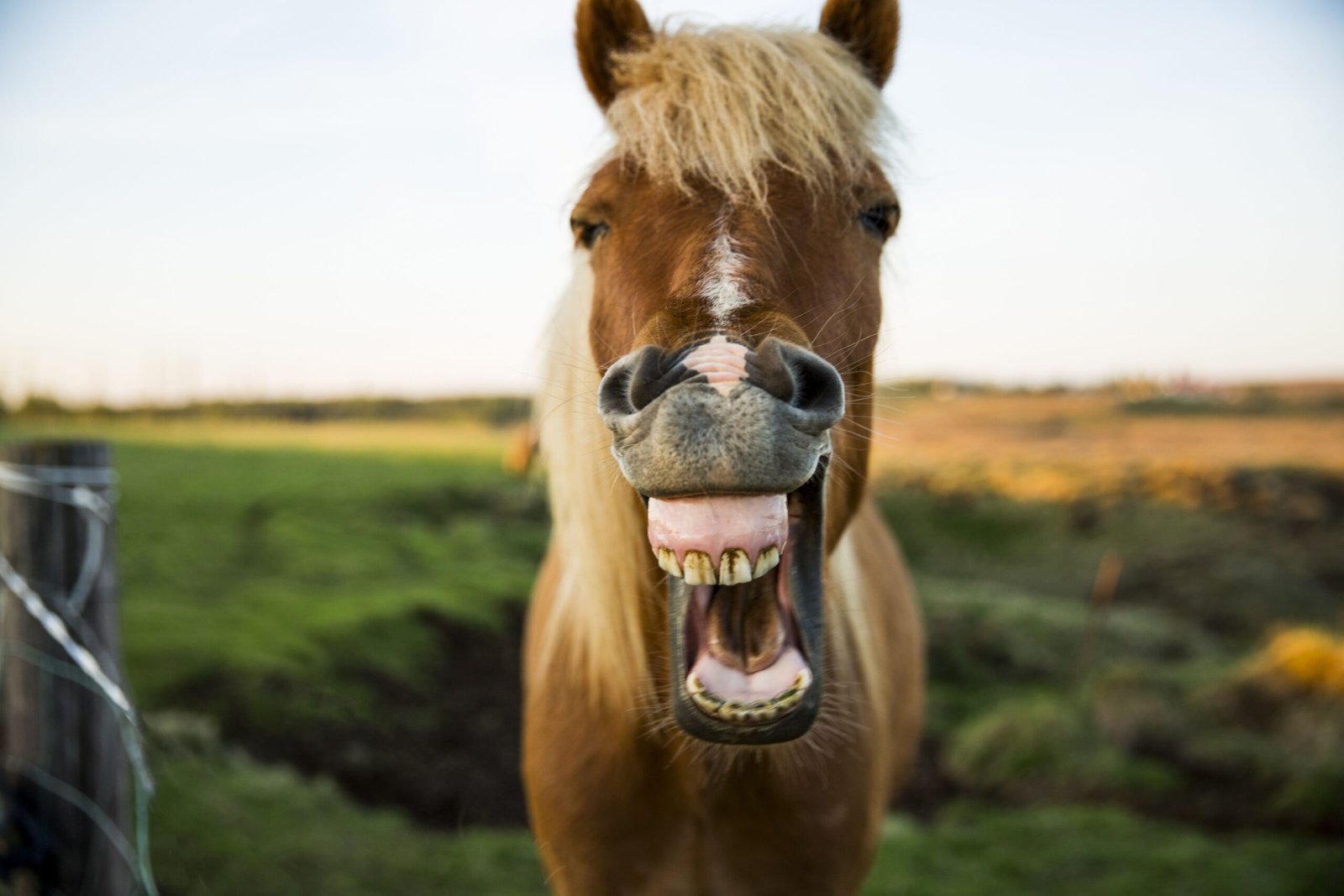As a responsible horse owner, it is crucial to pay close attention to your horse’s dental health. Regular dental check-ups are essential to ensure that your horse’s teeth are in optimal condition. Ignoring dental issues can lead to discomfort, pain, and even affect your horse’s overall performance. Here are 12 ways your horse tells you it needs its teeth checked:
| Signs |
|---|
| Dropping feed |
| Not wanting to eat hay/grain |
| Quidding (dropping large chunks of hay) |
| Tilting head to one side or the other |
| Increased salivation |
| Losing weight |
| Asymmetric swelling (can be soft or hard) |
| Resistant on one side of the bridle |
| Evasion of the bit or running through the bit |
| Responding differently to left and right rein contact |
| Difficulty in maintaining proper rein contact |
| Dropping chewed feed or hay balls (quidding) |
It is essential to recognize these signs early on to prevent any dental issues from progressing. Regular dental examinations and floating are recommended to maintain your horse’s oral health. A dental exam should be conducted at least once a year, and in some cases, it may be necessary to have checks carried out two or three times a year.
:strip_icc()/CaiaimageRafalRodzoch-5c40ae92c9e77c00010b4382.jpg)
Credit: www.thesprucepets.com
How to Tell a Horse’s Age by Their Teeth
Inspecting your horse’s teeth can also provide helpful information about its age. Equine teeth are open-rooted, which means they grow continuously. By closely examining the horse’s teeth, you can make an estimation of its age based on their development and wear patterns.
Consulting a Professional
To ensure accurate and effective dental care for your horse, it is recommended to consult a professional equine dentist or veterinarian with expertise in equine dentistry. They can thoroughly examine your horse’s oral cavity, identify any abnormalities or dental issues, and perform necessary procedures such as floating or extractions if needed.

Credit: www.wikihow.com
The Importance of Regular Dental Care
Regular dental care is crucial for maintaining your horse’s overall health and well-being. Dental issues can not only affect your horse’s ability to eat properly but can also cause discomfort and pain, leading to performance problems. Detecting and addressing dental problems early on can prevent more significant issues from developing and ensure that your horse remains healthy and happy.
Frequently Asked Questions For 12 Ways Your Horse Tells You It Needs Its Teeth Checked
How Do You Tell If Your Horses Teeth Need To Be Done?
Signs that your horse’s teeth may need attention include dropping feed, decreased appetite, quidding (dropping large chunks of hay), head tilting, increased salivation, weight loss, swelling, and resistance to bridle pressure. Performance issues, such as evading the bit and unevenness in rein contact, can also indicate dental pain.
It is recommended to have your horse’s teeth checked at least once a year, though more frequent checks may be necessary for some horses.
How Does A Horse Act With A Bad Tooth?
A horse with a bad tooth can show signs like evading the bit, resisting rein contact, and uneven chewing.
How Often Should Horses Have Their Teeth Checked?
Horses should have their teeth checked at least once a year. Some may require checks two to three times annually. Your vet or Equine Dental Technician can advise the appropriate frequency based on your horse’s needs. Regular dental checks are essential for maintaining your horse’s oral health and overall well-being.
What Is It When A Horse Is Quidding?
When a horse is quidding, it means it’s dropping partially chewed food from its mouth. This is often due to dental issues.
Conclusion
By being vigilant and observing your horse’s behavior and eating habits, you can identify signs that indicate the need for dental care. Regular dental examinations, floating, and addressing any dental issues promptly will contribute to your horse’s overall health and longevity.

